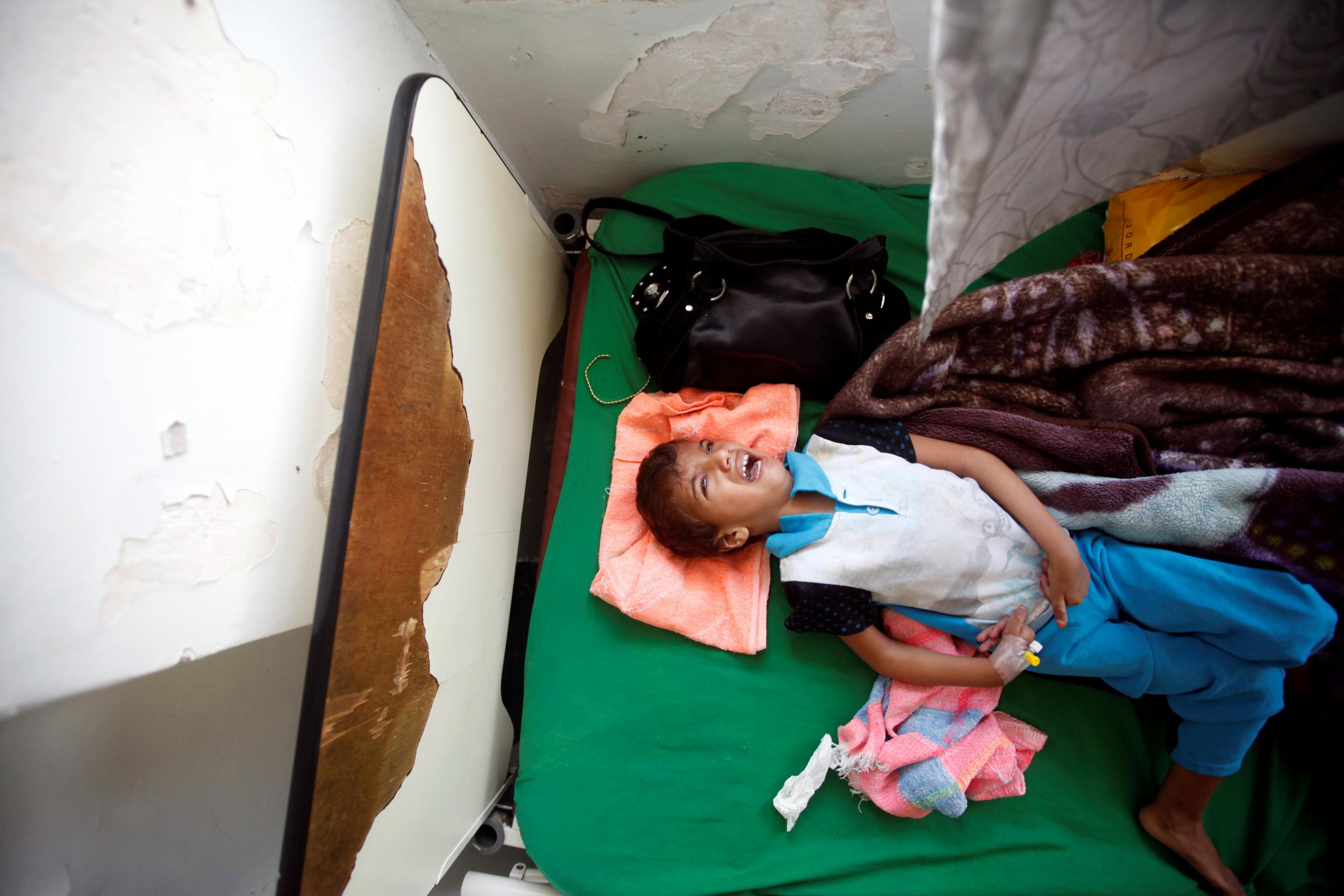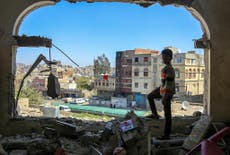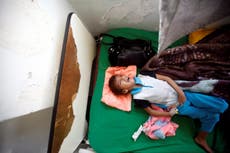The biggest global cholera outbreak is happening in Yemen and, disgracefully, it's manmade
We saw the impossible conditions that health workers face day in day out; 30,000 have not been paid their salaries in nearly a year

This week Yemen reaches a grim milestone: half a million people are sick with suspected cholera this year, almost 2,000 of whom have died. It’s the world’s worst cholera outbreak in the midst of the world’s largest humanitarian crisis.
Conflict, hunger and disease are daily affairs in this war battered country: two thirds of the population – 17 million people – do not know where their next meal will come from; 5,000 more Yemenis fall ill with cholera or acute watery diarrhoea every day.
Cholera is an old and insidious disease. It thrives where there is famine, poverty, conflict and weak governance. It goes after the most vulnerable: half of all suspected cholera cases and a quarter of associated deaths in Yemen are among children; a third of those who die of cholera are aged over sixty. Hunger and malnutrition exacerbate vulnerability to cholera and acute watery diarrhoea – and disease, in turn, can drive malnutrition: a deadly cycle.
Two weeks ago in Yemen, we met a young boy at al-Sabeen Hospital in Sana’a. Less than five years old, he was breathing heavily on a hospital bed, an IV attached to the veins of his small hands to help him battle cholera and malnutrition. We were so focussed on his desperate condition that we almost missed his mother, sitting nearby, who was also very ill, and needed attention.
Their suffering is mirrored many thousands of times over across the country.
While in Yemen, we talked with the sick, their families and the health workers caring for them.
We saw the tragic state of a health system in ruins, with less than half of its facilities able to offer the most basic medical care.
We saw the impossible conditions that health workers face day in day out; 30,000 have not been paid their salaries in nearly a year.
But we also saw that coordinated action can save lives and bring an end to this epidemic.
More than 99 per cent of people sick with suspected cholera or severe acute watery diarrhoea who can access health services are now surviving.
To reach all the people at risk, we are working side by side – establishing Emergency Operations Centres where health, water, food, sanitation and communication partners pool resources and jointly deliver the emergency services that will save the most lives.
With our partners, we are helping to rebuild critical infrastructure – and to rehabilitate hospitals, district health centres and the water and sanitation network.
We are also supporting incentives and stipends for the extraordinarily dedicated and brave health workers who form the backbone of our response effort.
This week, more than 40,000 community volunteers are going house to house telling families how to protect themselves from cholera. They will visit more than 3.5 million households to distribute soaps and rehydration solutions, and advise families on how to help a loved one who falls ill.
This is important, lifesaving work -- but it is still not enough.
With the country’s infrastructure still in ruins, and hundreds of thousands of people still at risk of cholera, malnutrition and the ever-present dangers of conflict, Yemen needs urgent investment – and action by those who can make a difference.
When we met Yemeni leaders – in Aden and in Sana’a, on both sides of the conflict – we called on them to give humanitarian and health workers access to areas affected by fighting.
We urged them to respect international humanitarian law and refrain from attacking civilian infrastructure, especially hospitals and health centres.
Most of all, we entreated them to find a political solution to this conflict that has caused so much death and destruction.
We can still reverse the tide of this outbreak – and the enormous humanitarian crisis on which it feeds.
We call now on the international community, and especially those with the power and the ability to bring pressure to bear on both sides of the conflict, to help bring an end to the suffering – by bringing an end to the conflict.
General Tedros Adhanom Ghebreyesus is the Director of WHO, David Beasley is the Executive Director of WFP, Anthony Lake is Executive Director of UNICEF




Join our commenting forum
Join thought-provoking conversations, follow other Independent readers and see their replies